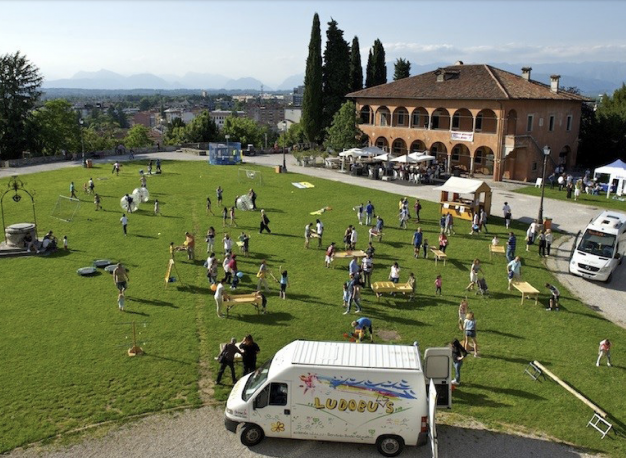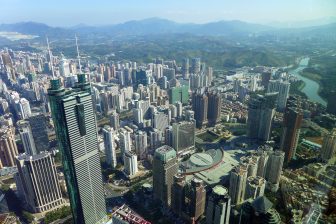
How the ‘Playful Paradigm Philosophy’ can improve the design of cities
The concept of ‘playful cities’ as an urban design tool is being promoted and celebrated through the completion of a new project.
An Italian team devised the Playful Paradigm philosophy, aimed at inspiring and guiding cities wanting and willing to include play in their future plans.
Ten years of work based in the city of Udine has led to the development a series of practical tools which, they say, could help promote benefits such as social inclusion, healthy lifestyles and energy-awareness. Toy libraries, play streets, play buses are just three examples of ‘play in action’ at ground level.
‘Integrated urban planning in Europe’
“The Playful Paradigm Network is proud to present its final output, a publication that sums up two years of insights, do’s, don’ts and case studies which arose during the Playful Paradigm journey towards transferring and adapting the Good Practice,” say the team.
They have been working within the scope of URBACT, the European Territorial Cooperation programme aiming to foster sustainable integrated urban planning in cities across Europe.
As with other URBACT projects, the Playful Paradigm’s mission is to enable cities to work together and develop integrated solutions by networking, learning from one another’s experiences, drawing lessons and identifying good practices to improve urban policies.
Ileana Toscana, the project’s lead expert, said: “Play offers unique opportunities for engaging stakeholders in cities, European cities face challenges of ageing, climate change and social exclusion: we need to find enjoyable ways to co-create solutions. In Udine, the play-based approach has become an urban policy priority which enables citizens’ participation and a peaceful civic environment.”
The ‘Playful Paradigm’, added Toscana, was part of a comprehensive strategy that the Udine authorities have been implementing for more than 20 years, under the umbrella of the World Health Organization’s Healthy Cities Project and the European Covenant of Mayors for Climate and Energy.
‘Identifying good practices’
Paolo Munini, chief officer for gaming activities for Udine, said: “Play is essential for child development. Playful activities are powerful tools when applied in cities, Play can be used for working in deprived neighbourhoods with local communities or in schools with students. It has become the emblem of social inclusion, cognitive stimulation, entertainment and lifelong learning.”
A report by the team highlights not only what has been achieved in Udine, but also examples of how play can, and has been incorporated, into civil planning processes in countries such as Spain, Poland, Ireland and Lithuania.
Click here for more information about the Playful Paradigm project.




